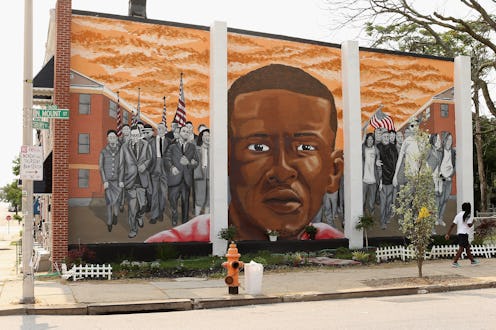News
Jury Chosen For The First Freddie Gray Trial
Trials are beginning for the six Baltimore police officers charged in the death of the 25-year-old black man who died April 19 of a severe spinal injury caused while he was in police custody. On Wednesday, the jury was chosen for the first Freddie Gray trial for Officer William Porter, who faces charges of involuntary manslaughter, second-degree assault, misconduct in office, and reckless endangerment. Judge Barry Williams questioned more than 150 people in two days before deciding on 12 jurors who will decide Porter's fate.
Gray was arrested April 12 when the police found a knife clipped to the inside of his front pants pocket after he fled from cops in his west Baltimore neighborhood "unprovoked," according to police documents. The prosecution says that an officer restrained Gray on the ground when he flailed his legs as he was arrested, and Gray asked for an inhaler for his asthma. Gray was then placed in the police van with his hands and legs bound, and, according to prosecutors and police officials, he was not buckled in as police policy requires. Baltimore chief prosecutor Marilyn J. Mosby believes the fatal spinal injury happened in the van as a result of being left unrestrained with his feet in shackles and hands in handcuffs.
The jury consists of five black women, three black men, three white women, and one white man, while the alternates are three white men and one black man.
Choosing jurors in a high-profile case like this one is tricky, as the jury needs to be unbiased from the start. Potential jurors are asked about who they are, their past experiences, and how they view crime. According to WMUR9, the 150 jury prospects were asked if they had strong feelings about Porter's and Gray's race (both men are black) and whether they had strong feelings about police misconduct.
A prospective juror, Franz Schneiderman, was interviewed privately by the judge after he indicated that he had either been accused of or the victim of a crime. Schneiderman told ABC News that he told the judge he believed he could deliver a fair verdict despite having some "unfortunate" experiences with Baltimore police in the past, but he was dismissed.
Officer Porter, the first to go to trial for the death of Gray, faces a maximum sentence of 25 years in prison for the charges brought against him. He did not witness Gray's arrest, but was called in as backup afterwards. He told investigators that he noticed Gray was in medical distress and was charged for not getting medical help or securing Gray in the back of the police van. "The defendant alone is on trial for what he did, or more importantly, what he did not do," prosecutor Michael Schatzow said during opening statements Wednesday, according to ABC News. Porter's lawyers told CNN the officer will testify in his own trial.
